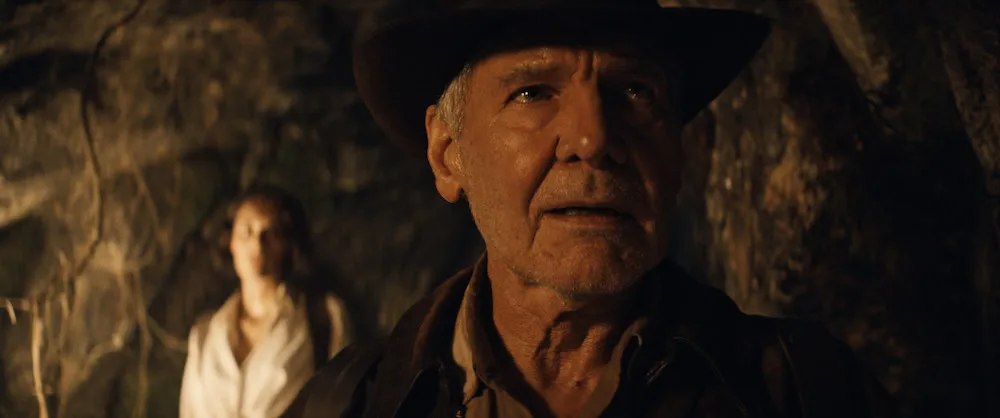 She’s baaack. Alma, that creepy little demonic girl from F.E.A.R. who draws inspiration from Japanese horror-inspired fixtures in dire need of quality time with a barber, returns to finish her apocalyptic agenda in Monolith’s F.E.A.R. 2: Project Origin. She’ll play with your perception of reality, toy with your senses and above all, make you enjoy an otherwise stereotypical and underachieving first-person shooter.
She’s baaack. Alma, that creepy little demonic girl from F.E.A.R. who draws inspiration from Japanese horror-inspired fixtures in dire need of quality time with a barber, returns to finish her apocalyptic agenda in Monolith’s F.E.A.R. 2: Project Origin. She’ll play with your perception of reality, toy with your senses and above all, make you enjoy an otherwise stereotypical and underachieving first-person shooter.
If the name Monolith sounds familiar, it should. Project Origin marks the studio’s first return to the series they forged after several second-rate expansions from other developers were churned out and critically panned over the past four years. This game is, without an ounce of doubt, the “official” sequel to F.E.A.R. we’ve all been clamoring for.
As Sergeant Michael Becket you are dispatched into Armacham Technology 30 minutes before a massive explosion fries everyone within a five-mile radius of the blast. Becket barely survives and, as fate would have it, proves a perfect subject to perform experimental surgery on. But by whom? And why? These are all questions Becket sets out to answer while being simultaneously hunted by Replica soldiers and aided via radio by a mysterious good samaritan. Oh, and haunted by ghastly visions of a ghostly Alma.
Armed with a loadout of four weapons, a small locker’s worth of grenades and F.E.A.R.’s signature slow motion move, Becket sets out on a what amounts to a roughly 10-hour excursion of shooting and blowing up hundreds upon hundreds of faceless Replica soldiers. The firing controls are tight, weapons diverse and environments rife with details to splatter Replica blood on. If there were a checklist for basic minimum requirements for a first-person shooter then Project Origin would score at least a 90 percent.
Though Project Origin succeeds at meeting the minimum requirements, it misuses the “special” elements designed to give it a unique identity. Using slow motion to defeat Replica soldiers, while visually rewarding, is too easy a crutch to fall back on. With a swifter and scalable recharge than F.E.A.R, slow motion in Project Origin can be abused to easily take out slow Replica soldiers or even speedy Abominations by listening for their music cue, pressing slow motion and letting the shotgun shells fly. That’s an unfair advantage over an enemy that, though they flip over items for cover on occasion, can already be mowed down without additional assistance. Grabbing that crutch, snapping it in two and pretending it never existed greatly increase the difficulty level without having to adjust a single slider.
The whole point of Abominations that chase after you with reckless abandon and Remnants, or eerie blast survivors, is to provide the scares that the F.E.A.R. franchise is built upon. When you have to blast through wave after wave of Replica soldiers before stumbling onto a rare pack of Abominations or even rarer Remnant, the monotony of “you again?” is especially hard to overcome.
Monolith’s level designers must have an affinity for Die Hard if the first two to three hours of escaping a soon-to-explode building are any indication. A rattled Becket is forced to explore blown out floors, climb into elevator shafts, creep through dark and moody mechanical areas, and crawl around claustrophobic air ducts like he’s a TV dinner. You can almost hear John McClane complaining, “How many (insert expletive of your choice) rooms and floors does this building have?” while fighting tooth and nail towards the faint shadow of an exit that never seems to materialize.
Though I’m sure the John McClane similarities are unintentional and the game does eventually break out into the open world, the indestructibility and sheer destructive force behind Power Mechs certainly is not. If slow motion gives Beckett an unfair advantage then the Power Mechs make him a god. Testosterone pumps through your system when climbing into one of these beasts that flattens anything near it with an impressive volley of gunfire and missiles. There’s no challenge to the Power Mech; only the unfiltered joy of serving destruction on an epic scale.
After battling through Replica soldiers, abusing slow motion against Abominations and laying waste with a Power Mech, there’s nothing you can do to stop the visions and attacks from Alma until the appropriate time comes. The uncertainty of not knowing when the screen will flicker and Alma will pop up to a chorus of sound effects and music booming from all surround channels is what F.E.A.R. 2 Project Origin is all about. Without Alma and her spooky interventions, you’d just as soon confuse Project Origin with any number of other first-person shooters with far more robust multiplayer options clogging the marketplace.
– Dan Bradley


